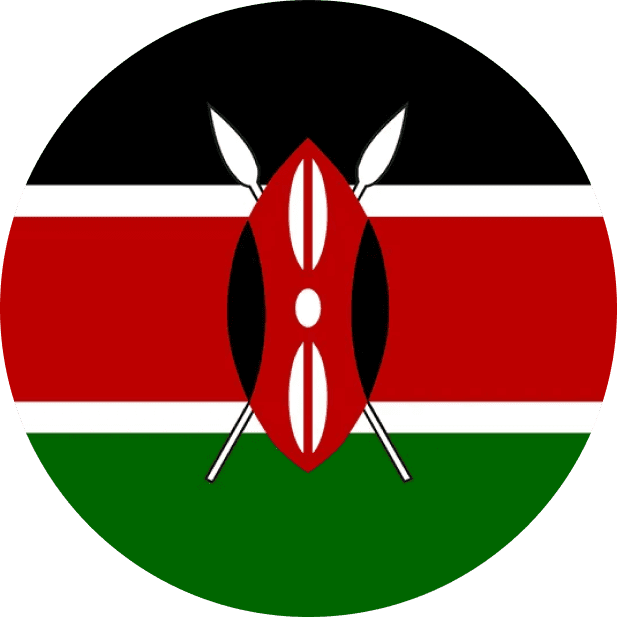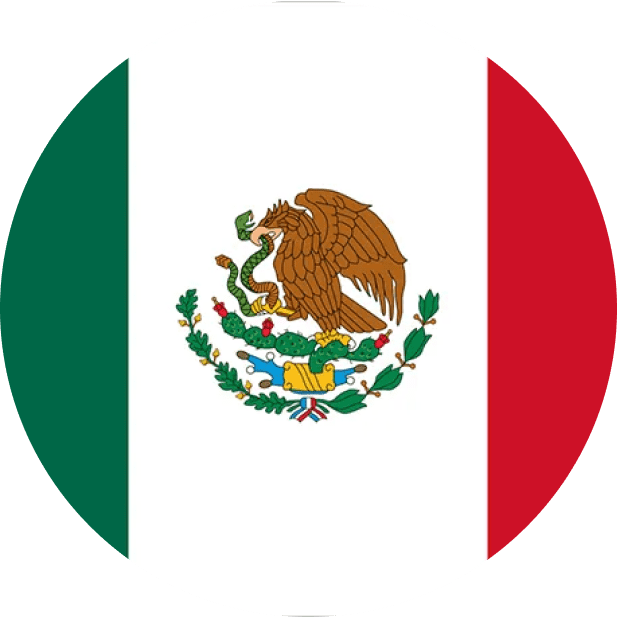About Chester Elton
![Escalating Employee Experience - Chester Elton [Interview]](https://assets-global.website-files.com/62d84b3d3ba446b2ec041a19/62d84b3d3ba44663dd04240f_Chester-Elton-1024x746.jpeg)
Chester Elton is the co-founder of The Culture Works, a global training company, he is the number one best selling leadership author whose books have been translated in 30 different languages and sold more than 1.5 million copies. He is one among the top-ranked leadership and organization cultural experts. Chester has been working in the field of increasing employee engagement and leadership coaching for over 20 years now, and we believe a person of his stature is the right one to give us great insights on a wide range of topics related to leadership and HR.
Aishwarya Jain
![Escalating Employee Experience - Chester Elton [Interview]](https://assets-global.website-files.com/62d84b3d3ba446b2ec041a19/62d84b3d3ba44667f00423de_image-1-1-1.png)
We have the pleasure of welcoming Chester Elton to our interview series, I am Aishwarya Jain from the peopleHum team before we begin just a quick introduction of peopleHum, peopleHum is an end-to-end, one-view, integrated Human Capital Management automation platform, the winner of the 2019 global Codie Award for HCM that is specifically built for crafted employee experiences and the future of work with AI and automation technologies.
We run the peopleHum blog and video channel which receives upwards of 200,000 visitors a year and publish around 2 interviews with well-known names globally, every month.
Aishwarya
Welcome. Chester, we are thrilled to have you.
Chester
Thank you very much. I appreciate the invitation. Delighted to be with you here.
Aishwarya
Thank you so much. So let's begin with the first question I had for you Chester. So firstly being in the tri-state area, we hope everything is safe and sound with you and your near and dear ones.
How do you believe this pandemic crisis we're facing will change how we approach leadership and work places around the world?
Chester
Well, first and foremost, thank you for your kind wishes. We are safe and happy and healthy in south New Jersey. We are right across the river from the new epicenter, which is New York City. So I appreciate your good wishes that I hope you are, you know, sheltering in place and you're in yours are happy and safe as well. So thank you for that.
You know, I honestly believe that this pandemic is going to reorder how we look at leadership.
I think this time has given us the chance to look at what is really important in a leader, you know? And are they looking out after their employees first and foremost, are they looking out for their customers? And thirdly, are they looking out for their communities?
You know, this pandemic has really put everything in perspective, and I love the companies where their first reaction is - how do we take care of our people? How do we take care of our customers? How do we take care of our communities, as opposed to the companies that almost immediately started to lay people off.
And so what does that tell you? Well, first is that their financials were probably not very good. There wasn't much in reserve, right? Secondly, it is that no matter what their mantra was about, 'people are our most important asset', clearly, when tough times hit, people were the first expendable asset.
No matter what their mantra was about, ‘people are our most important asset’, clearly, when tough times hit, people were the first expendable asset
And so not only is there going to be reordering in leadership, that's important, there's going to be reordering in where do we want to work? You know, where is it safe to work so that when a crisis hits, I'm not the first casualty. Does that make sense?
Aishwarya
It does make a lot of sense because we talk so much about people first, you know. And then when crisis hits, we just back out of that and in perspective, you know, it's just about money in business. So it's a very very sad thing.
Chester
It is. You know, I want to bring some case studies into our conversation, and Adrian Gostick, my long time co-author and partner at The Culture Works. You know, we're writing the story of Texas Roadhouse, which you may not know.
It's a restaurant chain here in the U. S. They have 600 restaurants. They have 80,000 employees. Now you can imagine that restaurants are shut down. You're allowed to get curbside service. You're allowed to take away, right?
So it was a huge pivot. The first thing Kent Taylor did as the CEO and founder of Texas Roadhouse, he said, "I'm going to take my $1,000,000 a year salary and I'm gonna put it in the employee Relief fund, and we are not gonna lay off one person during this crisis", now 80,000 employees, that's a huge commitment.
So he immediately started to think of how do we pivot our business? How do we keep our people employed? How do we serve our customers? How do we need to adjust our menu, our offerings and how do we give back to the community? And as we go through the questions that you've given me, I think it's a wonderful case study on the future of leadership, the future of business, and the future of where people are going to choose to work.
So, you know, he really did put his money where his mouth was, right? He's going to say, "Look, I'm rich. I can get through 3, 4, months, five months without a salary. I know that my waiters and waitresses cannot, that my cooks and my chefs who live paycheck to paycheck, they can't miss a paycheck, and I'm not gonna let them." Isn't it inspiring?
Aishwarya
That is beautiful indeed because if you can help somebody who is really in need in times of crisis, I think there's nothing like it because, you know, a lot of people are going to look at companies and they're gonna ask them these tough questions that what do you do for your employees during the times of crisis, right, and they better have good answers. Otherwise, their reputation is going to be at stake. And it's just about humanity as well, right? Not just about reputation.
Chester
The pandemic will pass. A dollar an hour more at another restaurant and I'm leaving. Not a chance. After this crisis, to grow and expand, it's in putting people first philosophy in their restaurants. It is the wave of the future. It is actually the wave of right now, that people are looking for that kind of organization to work for.
Aishwarya
Yeah, it's no more the future of work it's the now of work and we're in it. So how do you cope with it?
And, I know that you've been a well-known coach for a long time now, so tell us a bit about your journey and what significant theories and tenets do you believe in? And if you can elaborate on the famous Carrot Principle, that would also be a lot beneficial to our viewers.
Chester
My journey is an interesting one. You know, I grew up in a broadcast family. My father ran radio stations in Canada. I actually was born and raised in the great country, the Great White North Canada, you know, and I grew up in sales.
And so it became very apparent to me that I wanted a job that made a difference. That while I was selling TV time and it was great fun, you know, I sold in Detroit, in New York City and up in Hartford, Connecticut. I didn't feel like it was really making a big difference in the communities that I served. And so I took a job with a recognition company.
You know, they had an organization or sales contributions or innovation. And we did those things, the awards, and it was very celebratory. I love the fact that you could celebrate people.
Now that's when we wrote the Carrot Principle, right? And I love that book and by far our best selling book. What it led us to was to go beyond the carrot, right? It led us to - How is your culture? It led us into studying leadership.
In fact, our latest book I'll give you a little visual. Its sort of The Carrot Principles 2.0 is leading with gratitude.
And so I think we went from recognition, which I think is really important, right? That token that I think there's a great place for that to the leadership aspect of how do I emotionally engage my people?
How do I express that gratitude that I think is the next level of the Carrot Principle? And so we've had great fun in interviewing extraordinary leaders and organizations that really do lead from that human side. So thank you for the question. I know that was a bit of a long answer. I hope it was helpful.
Aishwarya
No, absolutely.
And talking about gratitude, really, you know, how do you think gratitude helps in, you know, changing the environment that you're in. How does it really impact?
Chester
Yeah, see, great question. And I think it changes everything, because when you have leaders that lead with gratitude, you know, gratitude attracts gratitude. You know, it's the old saying The more you give, the more you get, it's better to give than to receive because when you give, you always receive.
Now here's what's interesting. And I love this. We talk about the gratitude gap, right?
It's that most leaders do not lead with gratitude. You know, they think that look, 'I've got to be tough, I'm gonna put the fear in people'. And so we did some research. You know, our work is very research-based, and we asked the question, If you feel like your job is in jeopardy, will you work harder? 37% said yes, that is an incentive.
We said, Will you work harder if you have a leader that is really hard on you, you know, micromanager. Really demanding. 38% said yes. Here's the key, we said - If you work for a manager that expressed gratitude and appreciation, how much more likely are you to work harder? 83% said yes.
So you know that's the gratitude gap, right? Fear - yes. Micromanaging - yes, for a short period. Gratitude is the long game. It's the way that you really win the hearts and souls of your people. The best leaders do it occasionally, the great leaders do it every time.
Gratitude is the long game. It’s the way that you really win the hearts and souls of your people. The best leaders do it occasionally, the great leaders do it every time
And we had the honor to interview some extraordinary leaders. Ken Taylor at Texas Roadhouse, being one of them that really showed us that, when you care about your people and you express it often you can build extraordinary cultures and extraordinary organizations, and yet it's not used nearly as much as it should be.
And I'm hoping that this pandemic really does make leaders refocus on what's really important. And that's their people. Does that ring true with you?
Aishwarya
It does absolutely, and you're right. That's the difference between good leaders and great leaders, you know. That's the parameter most leaders miss out on, they just overlook it.
But really, you know, it's about the human employee experience that you're missing out on, and I think there is a lack of awareness in leaders, particularly with this, you know, gratitude aspect, and how do you pay it forward, and how do you share your knowledge to do better?
So from your experience, tell us about the change in leadership strategies from the last decade, You know, as we prepare for the next one and what fundamental approaches and aspects in leadership thinking, behavior and style would need to change?
Chester
Yes. Another excellent question. I appreciate it very much. I think particularly and you talk about bringing in your platform and how you can better communicate and on and on, right? Transparency has to be so easy now, right?
I think you know more and more you're going to see leaders need to communicate on a more regular basis, be much more transparent about what we're doing, how we're doing it? Why are we doing it? And where are we going? You know, that information becomes not nice to have. It becomes a must-have and really critical. I really love your platform in engaging people and sharing information and bringing teams together in a more effective way.
I really love your platform in engaging people and sharing information and bringing teams together in a more effective way
I think the future really is that you call it the automation. There's no question that leaders and organizations are going to be judged on how open and honest they are, how truthful they are, and how much they communicate what they really value to their employees. I think that shift has been happening and will continue to happen. And I think this pandemic will speed it up.
Because when this crisis hit, all of a sudden there were surprises - What do you mean we don't have enough reserves for three months? You know, I get that some of my people are living paycheck to paycheck. I had no idea that our company was living paycheck to paycheck, so that transparency, I think, is going to really accelerate.
Aishwarya
And in your career lifetime have you seen people getting more open towards using technology because everything is getting automated now. So...
How can you leverage technology in increasing employee engagement? And do you think people have really started accepting it?
Chester
Well, absolutely. I think particularly. You know, the millennial generation. Gen Z. Um, you know, this is a technology-savvy world and everyone that you're bringing into your organization, their expectation is, I've got it all at my fingertips.
You know, it's easy to access, whether it's, you know, through my mobile, and I think particularly through your mobile devices, you know more and more, uh, your laptops and someone or just for a bigger screen.
You know, you should be able to get all the information you need on your mobile device and that it be quick and easy. And there'll be multiple ways for you to get that information. You know, whether it's the one-minute video sound bite or it's a podcast.
How you communicate with your employees. There have to be multiple channels and those channels all need to be automated, you know, they all need to be very easily accessible. They need to be reliable, they need to be protected. And, if you don't have that, I don't know how you're gonna be able to communicate with an organization of any size very, very effectively.
You know, we talk a lot about the gig employees, and I think you know, for organizations it's going to allow them to pivot faster. You could bring in resources and let them go.
And for the gig employee, and I think this is really important - the variety of work and the way work engages you, now becomes a menu, you know, for two or three months I may be working for a consulting firm, and then I might be working for a hotel, I might be working, you know, for a grocery store chain or restaurant because your skill sets to transfer.
And this mobility is really gonna be interesting in allowing organizations to bring in resources pivot faster and for employees to have really rich experience and again your automated platform like peopleHum that I can plug in, get all the information I need, feel a part of the team very quickly and at the same time be able to unplug and go somewhere else.
Your automated platform like peopleHum that I can plug in, get all the information I need, feel a part of the team very quickly and at the same time be able to unplug and go somewhere else
It becomes a real challenge for leaders, and I think it becomes a real challenge to bring that information together, again why I think your platforms play a vital role in being able to bring information together, disseminate it and move on quickly. I'm sure you agree.
Aishwarya
Thank you so much for those kind words. You know, that's the vision that we have, you know, talking about millennials. I'm sure you know, you know, the entire fuss about, 'oh, millennials and the gap between baby boomers and millennials and you know, there's a difference in mentality.'
So do you believe this, you know? Now, once we come out of the crisis, that's going to be a lot of unemployment, right? So do you have any kind of advice for millennials? So how do you think they should now really cope up with this?
Because, you know, if you see, the graduates from this year are really going to be disappointed, they would have a lot of difficulties.
So how are leaders supposed to approach that? And how is the gig economy or even the millennials, how are they supposed to approach this?
Chester
Well, you know, you're right. It was this graduating class coming into the biggest economic boom ever. You know where you figured it was gonna be full employment. It wasn't gonna be, are you gonna get a job?
It's which job where you're gonna pick, you know, to all of a sudden - Hey, I think with Millennials, in particular, I think you need to just get work. You know, you need to be creative and you need to find a job and you need to get a job and you need to start working.
However, that pans out, get the job, start to work. I think for employers, it's gonna be really interesting. I think that once we come out of this, I'm hoping that there's gonna be a huge hiring boom because now we're back up and running, you know, hotels they're gonna open, they're gonna need, you know, people to ah, to work there. I think the expectation for graduates is gonna come down quite a bit.
And I think that what you've got to do is adjust your mentality that says, 'Look, I could no longer be picky. I need to go work, and I need to find a job or two or three, and I need to just dig in and go work and look for a variety of experiences'.
And for employers, it's gonna be a rich marketplace. There's gonna be a lot of people to choose from. And I think there will be a hiring boom. And I think that's gonna be great.
And again, you know, being able to put yourself in the best position, you know, what does your LinkedIn profile look like? What does your experience look like? What does your life experience looks like, is gonna be really, really important that you market not just your education and your experience, market yourself, YOU, the person that you are - hardworking, smart, easy to pivot, reliable, honest? All those things are gonna be the differentiators.
It’s important that you market not just your education and your experience, market yourself, YOU, the person that you are – hardworking, smart, easy to pivot, reliable, honest. All those things are gonna be the differentiators
I get what your resume says. I want to know, do you fit my culture? Do you fit where I want to go as an organization and so I think it's gonna be very interesting? It'll be tough. And I think for that reason it is gonna be incredibly valuable. Anything that's valuable is hard, and this will be a hard time. And it'll be interesting to see how people push through both on the employees' side and the organizational side.
Aishwarya
Absolutely. I think it will really be a learning experience for all of us, you know, because we've never really never, never, ever been in such a situation before. And, you know, cooperations are going to have so many choices suddenly, and they're gonna be very picky.
So I think those people that are, like, really searching for jobs they're gonna go through a very tough time. And, you know...
I just want to ask you this - as young leaders emerge, right? What are those important factors you think that a leader particularly should develop? I mean, I know about gratitude, but what are those other things, you know, I'm a young leader, too, so I would really like to understand. What is it that I should be doing more and more? And what should I be doing less?
Chester
Well, you know, excellent questions. And, you know, if I were to coach you up, I'd say, Listen, think about not just what is the job. Not just what we do and how we do it. Spend a lot of time on why.
Think about not just what is the job. Not just what we do and how we do it. Spend a lot of time on why
Do you know what is the impact? And again, I love to come back to you know, my favorite leader right now and actually has been for a long time, Kent Taylor at Texas Roadhouse restaurants.
He thinks about how am I impacting my people, my customers and my community. And if I'm serving all three really well, putting my employees first, I think that gives you a great road map as a leader, you know, how am I making a difference? And I'll give you a simple example.
So, Kent Taylor takes a look and he says, Look, all right, one of the big part of their culture is steaks. It's a steakhouse and they're hand-cut steaks and they're high-quality steaks at a very reasonable price. When he finds out that people that want to go to the grocery stores aren't able to find the meat that they're looking for.
And so he says, 'Look, I've got a lot of meat and I don't want it to spoil, So I'm gonna offer meat, instead of cooked food I'm gonna offer you just steaks. Take him home. You can cook them. I'm gonna offer them at below market value.
So I'm serving my community and my customers. Not only that, I'm keeping my meat cutters employed because they still have to come in and cut the meat. So when you start thinking of the universe instead of how is my company going to survive?
You're thinking, 'How is my company gonna thrive? How are my employees going to keep working? And how am I gonna serve not just my customers, how am I gonna serve my community by, supplying great food at a very real reasonable price. A fun pick up location. Keeping everybody employed.'
Now what he says, and I love this in a crisis and I recommend as a young leader this as great advice - When things get off-kilter, talk to the crazy people. The people that really think outside the box.
When things get off-kilter, talk to the crazy people. The people that really think outside the box
For example, one of his restaurant owners says, You know what? I need to find a way to bring people to my restaurant. They can't go inside. How do I bring them to my restaurant, make it fun and engaging and serve my community? So he says, I'll tell you what? I've got a big back wall on my restaurant. I'm gonna show movies. You can come to the movies free.
We're going to space the car's- social distancing from each other. And if you want some food, we'll deliver it to your car. Now, whether you want the food or not, that's fine.
I just want you to take a mental break for two hours, put your family in the car and watch a movie. You know what? That's brilliant, and it's so far out of the box.
So when things get a little, you know, listen to your crazies, engage the crazy people because the big ideas are sometimes the craziest thing. You know, engage, and talk to your crazies. What do you think?
Aishwarya
Well, that is very insightful. I mean, I could never have thought like that. So I think it's true. You have to be really crazy, to really get innovation out of the box, and that's wonderful.
What he's doing with, you know, the restaurant. That is very, very inspiring. And thank you so much for that example. It really helps me and helps a lot of leaders, you know, getting a lot of perspective.
And I think it's wonderful how everybody's, not just talking about surviving right now, but actually thriving and flourishing, it's about gaining more productivity. And I completely agree with that and thank you so much for that, makes a lot of sense.
Chester
You know there's theory and then there's, you know, how do I put it into practice? And what I love about Ken Taylor is there's all these theories. What does that mean to me now? I need an answer now.
You know, I need to pivot now. Another thing as a young leader is, don't be afraid to make mistakes. You know, you're going to make a lot of mistakes and embrace those mistakes, right? Innovation happens after a lot of failure. You know, another organization that you should study that's wonderful, and I have an interview with him later today, is WD 40. You know the oil, right? Everybody has a can of WD 40.
WD 40 stands for water displacement, 40th formula. So it took him 40 tries to get the formula right. So the question is, were there 39 failures? Absolutely not. There were 39 learning opportunities and Gary Rich was the CEO of WD 40. He says, Look, at WD 40 we don't make mistakes. We have opportunities to learn. So in this crisis you have to stop saying, 'Why me? Why is this happening to me?' and instead ask yourself, 'What am I supposed to learn?'
So in this crisis you have to stop saying, ‘Why me? Why is this happening to me?’ and instead ask yourself, ‘What am I supposed to learn?
And I think in organizations, particularly on the people side, there are great lessons to learn around how we engage and take care of our people. What do you think?
Aishwarya
Absolutely. I think, you know, failures are just stepping stones to success so it's not really a mistake, but it's a stepping stone to success. And, you know, that's what organizations should believe in.
And I agree with that completely. So, you know, thank you for those beautiful examples.
And I just want to ask you, is there something you know, some important sound bites that you would like to leave for our viewers, or something that probably I haven't asked you and you'd really like to talk about?
Chester
You know. Thank you. Thank you for that. With my partner, Adrian Gostick, we were very much into research, you know, We have a database of over 1,000,000 engagement surveys worldwide.
We have our own motivators assessment. We've had 75,000 people take that so we have a lot of data insights, and we've got a road map that if people will follow, lead with gratitude, be transparent, they can create great organizations and great teams at work. There's no question about it. The research is rock solid.
What unfortunately happens is we sometimes leave our best selves at work. We're so focused on our work, we spend so much time at work. We take all these principles and we build great workplaces and we come home and we're exhausted.
And so what I'd like to leave with our listeners is 'take it home'. You know, these principles of leading with gratitude, you know, buy the book, okay, there's great ideas in here, and the point is, at the end of the book, we have the baker's dozen - 13 great ideas on how you take gratitude home.
Here's my favorite data point. If you're happy and engaged at work, you're 150% more likely to be happy and engaged at home. So as leaders, create a great workplace so that that wonderful ripple effect is taken home to families and their communities.
If you’re happy and engaged at work, you’re 150% more likely to be happy and engaged at home. So as leaders, create a great workplace so that that wonderful ripple effect is taken home to families and their communities
You know, let's not punish mistakes at home. Kids make mistakes. It's all part of the learning process. Let's listen to each other. Let's engage. Let's look for the crazy ideas on how to make our families better and engage. Put your devices away. Play a board game. I think, from the pandemic we're all forced to eat together again, right?
Make your meals meaningful, you know, connect with people you, call people you haven't talked to in a long time. I'm a huge fan of just a handwritten note. I know it's really old school, write a note, drop it in the mail. You know, I know it'll take a while to get there.
Text somebody today that you love that you've been thinking about, you know, take these wonderful principles that we're learning from this pandemic to really connect.
Take it home. Let's be grateful. Let's be kind and let's take our great management principles and applying to the people that mean the most to us, our families. Thank you for the question. That's my sermon for the day.
Aishwarya
That is beautiful. That is indeed beautiful. Chester. It's just it about the continuum, not just have principles for the workplace but actually take it home and apply them to all areas in your life to really have a purposeful life, because it's really about being purposeful at the end, right?
Something, that’s for the greater good, you know, to have a wonderful life and to be remembered for the good things that you do. So learning with gratitude. I'm definitely gonna buy that book Chester and thank you.
Chester
You know, I'll tell you, we have a great book website. It's called leadingwithgratitudebook.com, and there's some great downloads. You know. The forward is written by a friend, Marshall Goldsmith.
There's a lot of it we're giving away, and it really comes back to something my father taught me when I was very young. He said, You know, Chess, you be good to everybody. Everybody's having a tough day. And when you think about that, whether you're in the workplace or you're at home, I guarantee you that most people you're talking to, there's something going on. They're having trouble with a child. They've got bad news. They're worried about their job. They're worried about their community. So again be kind. Be good to everybody. You know, everybody's having a tough day and we're all in this together.
So again, let's be kind. Let's be grateful and take it home. Thank you so much for the invitation to spend some time. My morning, your evening, it's been delightful. You asked wonderful questions. There's no doubt in my mind that you are going to be an extraordinary leader, so keep doing what you're doing.
Aishwarya
Thank you so much, Chester. I think I've had a really enriching experience with you and I would love to keep conversations going on with you and, you know, thank you so much for your time. It's been wonderful. And I hope you stay safe.
I hope your grandchildren are all ok and you can see them very, very quickly. So once again, thank you so much for participating in LeadersHum and if there is anything we can help you with, if we can get together again sometime soon to have another conversation and one day even probably face to face, I’d love that.
Chester
I would love that too. I am a huge fan of Indian food. I love the spices. I love the variety. And you know what? For more information, we're posting every day on LinkedIn, something we're grateful for.
We use the hashtag - #Findyourgratitude. I'd love to encourage your listeners to do the same. Just a little photo, a little something. Where did you find your gratitude today? Do hashtag find your gratitude. It would be a wonderful gratitude community.
Aishwarya
Sure. Thank you so much, Chester. #FindYourGratitude. I'm gonna follow that. Thank you so much for your time and take care.
Chester
You too, Namaste.































![Escalating employee experience - Chester Elton [Interview]](https://assets-global.website-files.com/62d84b3d3ba446b2ec041a19/62d84b3d3ba44633ce04418e_Chestor%20Elton.png)



.jpg)
![How to stay relevant during a crisis - Rita McGrath [Interview]](https://assets-global.website-files.com/62d84b3d3ba446b2ec041a19/62d84b3d3ba446881d043992_Untitled%20design%20(13).png)
![Transforming adversity into opportunity - Rhett Power [Interview]](https://assets-global.website-files.com/62d84b3d3ba446b2ec041a19/62d84b3d3ba446eee4043850_untitled-design-(4)_optimized.png)












